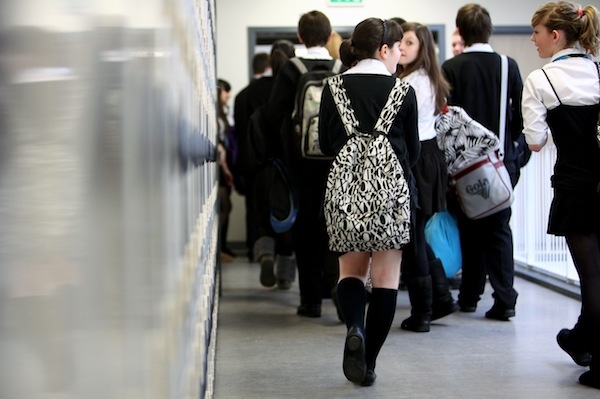Ofsted reports are a waste of time. Schools are notified three days ahead of any visit from the inspectors. At my school this gives our headmaster plenty of time to bring in an army of cleaners. Every doorknob is polished; every lightbulb dusted; and every skirting board scrubbed.
The teachers themselves get a makeover. Unshaven faces and grubby suits vanish, replaced by nicely pressed trousers and perfect comb overs. They are instructed to dig out their most engaging, intuitive and intriguing lesson plans to impress the men with the clipboards.
Pupils take part in the charade, too. At my school, we sit in lessons pretending to study; we know perfectly well that the teachers are so eager to impress Ofsted that they won’t bother to check our work. And I’m lucky enough to go to a high-performing school. Imagine the panic in a struggling comprehensive. It’s well known that some schools suspend their most troublesome pupils, so they are out of the way when the inspectors arrive. The Daily Mail has reported that some schools even bribe pupils £100 to stay at home.
It’s no wonder that so many obviously ‘average’ or ‘good’ schools are magically bumped up into the top grade of ‘outstanding’. I’ve discussed this with the Education Department, and they point out that Michael Gove has smelt a rat here. Last year he warned that more than half of secondary schools and nearly one in four primaries boasting an ‘outstanding’ rating do not deserve it.
The solution is obvious, and fortunately it’s the one the watchdog’s new chief, Sir Michael Wilshaw, is pursuing. Ofsted should conduct random inspections on schools. Inspectors should be able to wonder into lessons unexpected, so as to gain a real idea of what actually happens, comb overs and all. Only that way will the authorities be able to judge how schools are truly performing, and how to improve them.
Max McKinley is a sixth form student on work experience at The Spectator.






Comments